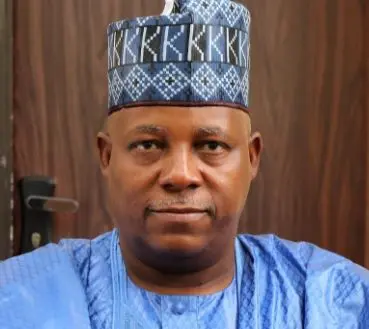
Vice-President Kashim Shettima said in Rome, Italy, on Monday that Nigeria has mobilised more than $500 million for innovative, profitable, equitable, and sustainable food system transformation initiatives.
Shettima, who spoke while chairing a high-level meeting at the United Nations Food Systems summit, said the $500 million was mobilised through domestic resources, multilateral development banks, international financial institutions and climate funds by leading agro-businesses.
He said the funds would be used for financing food system transformation, development of Nigeria’s agro value chain and the setting up of special agro-industrial processing zones.
“In this event, the government of Nigeria will be showcasing its value chain development programme, VCDP, as a unique example of a successful partnership among producers, the public sector and private operators.
“The VCDP, which is co-funded by Nigeria and International Fund for Agricultural Development, IFAD, has empowered vulnerable farmers and youth to engage in commercial partnerships with some of the biggest food processing and marketing firms in the world such as Olam,” the vice president said in a statement signed by Director of Information in his office,” Olusola Abiola.
He said the government’s vision of ending hunger was to build on the success of the VCDP, adding that the federal government was determined to empower Nigeria’s rural smallholders and operators, youth, and women living below the poverty line.
This, according to Shettima, is to enable the people take advantage of the new special processing zones.
While stressing the significance of the special agro-industrial processing zones, SAPZ, he said “the local governments, IFAD, African Development Bank, AfDB, Olam and other private actors were brought together alongside the government of Nigeria for transformative financing of food systems that leaves no one behind.”
On conducive business environment, Vice President Shettima said: “We had two albatrosses around our necks, subsidy on petrol and multiple exchange rates system.
“We withdrew the subsidy on petrol from day one, just like President Ruto did in Kenya. To mitigate the effects of the subsidy removal, the government embarked on the immediate release of grains and fertilisers.
“Along this way, the president has already approved the infusion of a huge quantum of funds towards repositioning of our security architecture.
“We have similar problems with Somalia and Kenya, especially in the Northeast and Northwest regions, of our country and so we are repositioning our security architecture to provide support for farms and farmers.”